In this blog, one of our 2023 #150Leaders, Freda (Adult Nursing Student) from the University of Salford, shares an accurate and detailed description of the Welcome Event sessions who took place last month in Manchester.
Day 1
The 150 Leaders Conference began with a brief introduction by Professor Nigel Harrison, setting the stage for what would turn out to be an inspiring journey of self-discovery and empowerment.
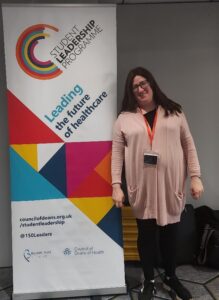
We then heard from three students’ alumni, which proved to be incredibly motivating. We had Shannon Gorman, a Nursing and Paramedic Science Student, who was incredibly relatable. She demonstrated that anyone could achieve great things with determination and a focused mindset. She emphasised that our individual journeys don’t always have to appear grand; what matters most is staying true to our own paths. Then there was Raymond Amoako, a Therapeutic Radiographer Student, who exemplified the importance of organisation and taking advantage of all available opportunities. He shared his journey of building confidence and learning when to say no. Lastly, there was Allyson Omoniyi, a Nursing (Mental Health) Student – what a powerhouse! While I may never accomplish half of what she has, she showed us how to seize every opportunity and, most importantly, how to believe that we deserve it.
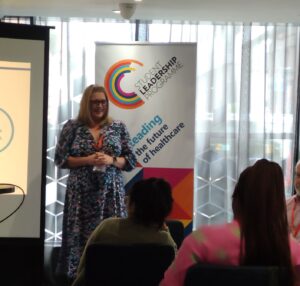 Rachel Moses OBE, a Consultant Respiratory Physiotherapist, led a powerful session on imposter syndrome. She reminded us that “no one can give you as much positive feedback as yourself.” We explored topics such as leadership, confidence, diversity, and the importance of self-recognition.
Rachel Moses OBE, a Consultant Respiratory Physiotherapist, led a powerful session on imposter syndrome. She reminded us that “no one can give you as much positive feedback as yourself.” We explored topics such as leadership, confidence, diversity, and the importance of self-recognition.
During dinner, we heard from Professor Nigel Harrison. His vast experience and unique story were truly inspirational. He offered valuable advice, including the notion that “career progression isn’t linear; you can move in various directions, and that’s okay.” My table fostered engaging discussions covering a wide spectrum of healthcare topics, from dementia care to the maternal and infant experience. These conversations were enriched by students hailing from diverse fields, including midwifery, dietetics, podiatry, mental health nursing, and physiotherapy, representing regions across England, Scotland, and Wales.
Day 2
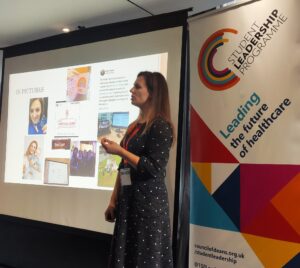 The second day started with a hearty breakfast and a touch of Manchester sun. The day’s first presentation was led by Raluca Oaten, a 150 Leaders alumni and Intensive Care Nurse, whose commitment to driving change was truly inspirational. She emphasised the significance of being part of a team that values authenticity and encourages vulnerability, leaving us with a powerful reminder: “always know who you are and what your values are.”
The second day started with a hearty breakfast and a touch of Manchester sun. The day’s first presentation was led by Raluca Oaten, a 150 Leaders alumni and Intensive Care Nurse, whose commitment to driving change was truly inspirational. She emphasised the significance of being part of a team that values authenticity and encourages vulnerability, leaving us with a powerful reminder: “always know who you are and what your values are.”
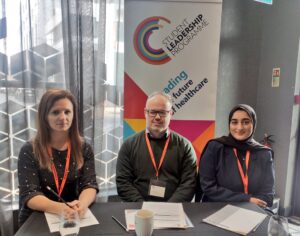 Next, we engaged in a ‘Dragons Den’ activity where each group pitched ideas on how to support healthcare students to a panel of judges composed of Raluca Oaten, Jon Eames from the Council of Deans and Ismat Khan, a Diagnostic Radiographer and one of the 150Leaders Alumni. This activity taught us valuable lessons in teamwork, active listening, and gaining insights from others’ experiences.
Next, we engaged in a ‘Dragons Den’ activity where each group pitched ideas on how to support healthcare students to a panel of judges composed of Raluca Oaten, Jon Eames from the Council of Deans and Ismat Khan, a Diagnostic Radiographer and one of the 150Leaders Alumni. This activity taught us valuable lessons in teamwork, active listening, and gaining insights from others’ experiences.
Dr. Anna Byrom then led a session on compassion. With her positive attitude, she taught us that we have the power to choose how we show up. We discussed the importance of creating a balance to prevent burnout, and she left us with the thought that “compassion is the only universal language that everyone understands.”
We concluded by participating in a group activity centred on crafting compelling elevator pitches that highlight our unique qualities. This exercise was valuable for our growth as future professionals and leaders.
Upon reflection, the 150 Leaders Conference instilled a powerful sense of self-belief and a better grasp of seizing opportunities. I’m now more confident and committed to personal and professional growth.
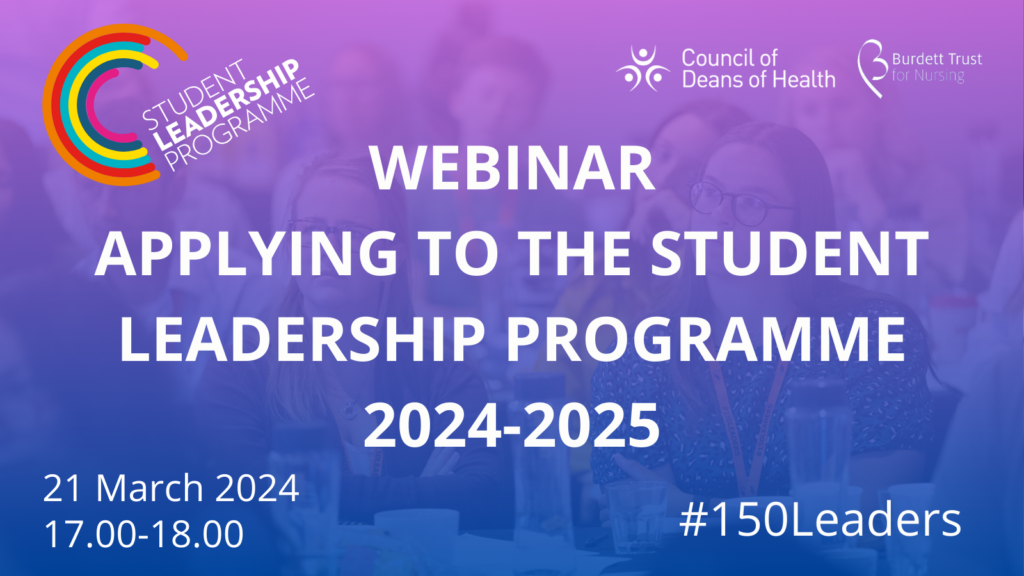

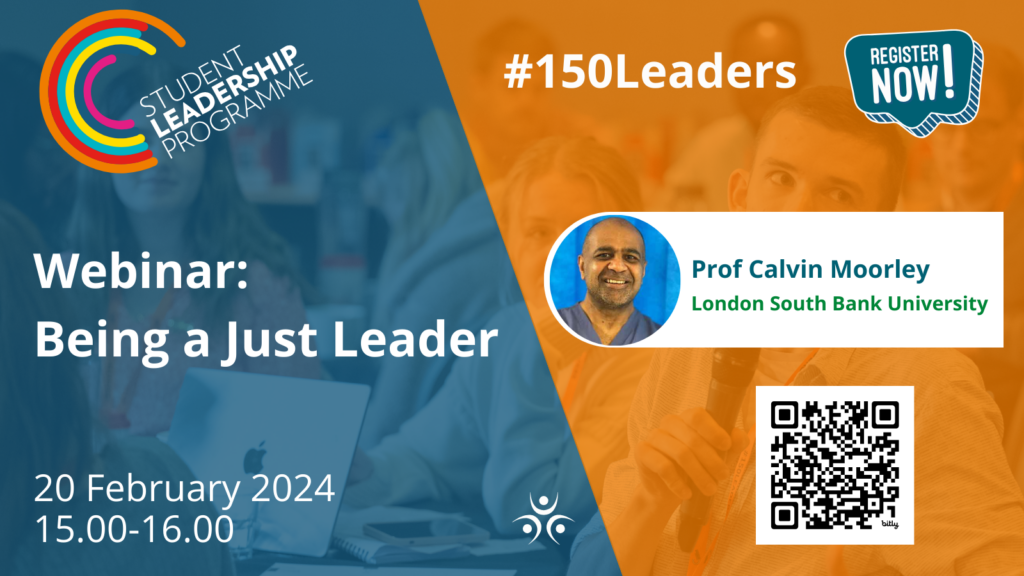
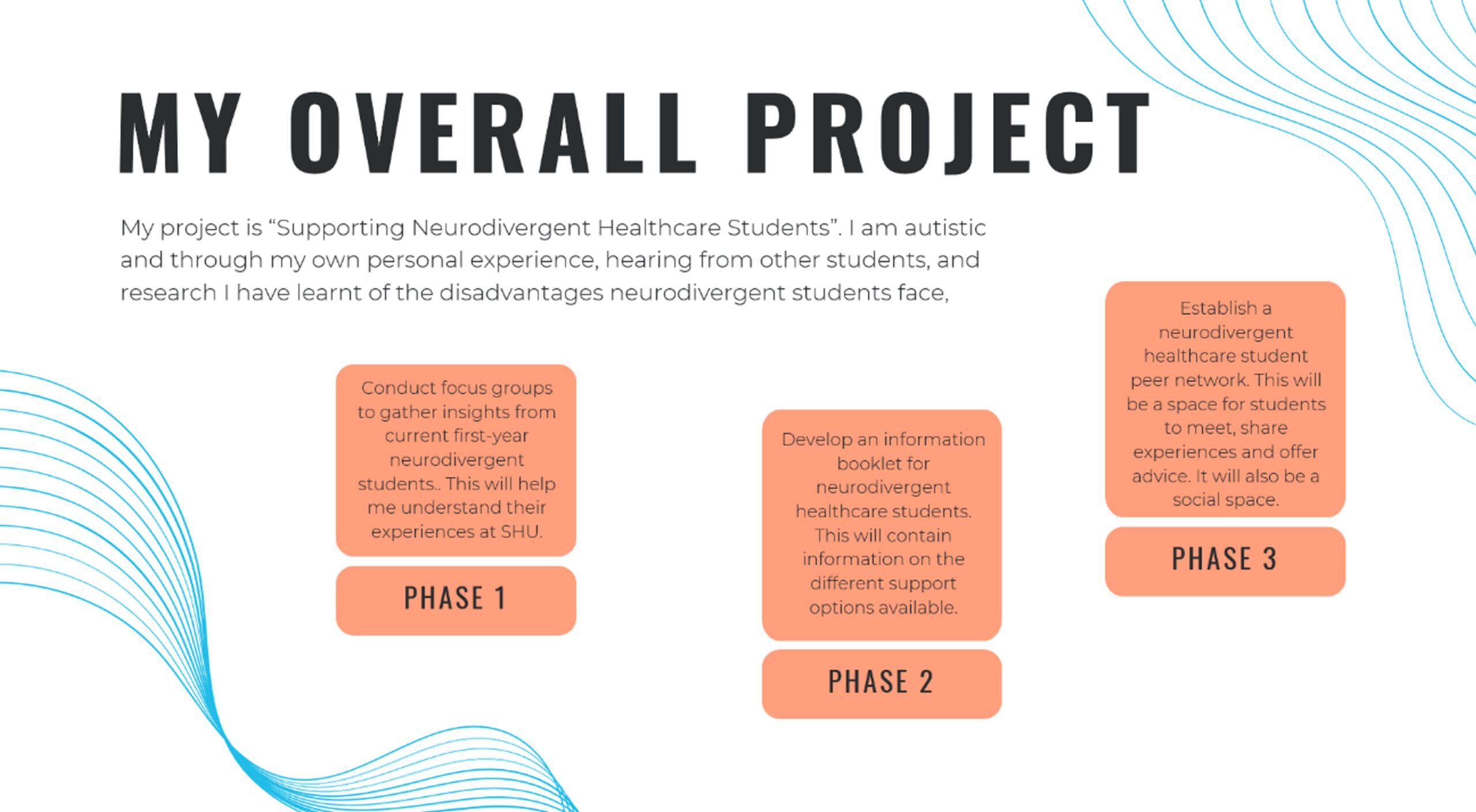
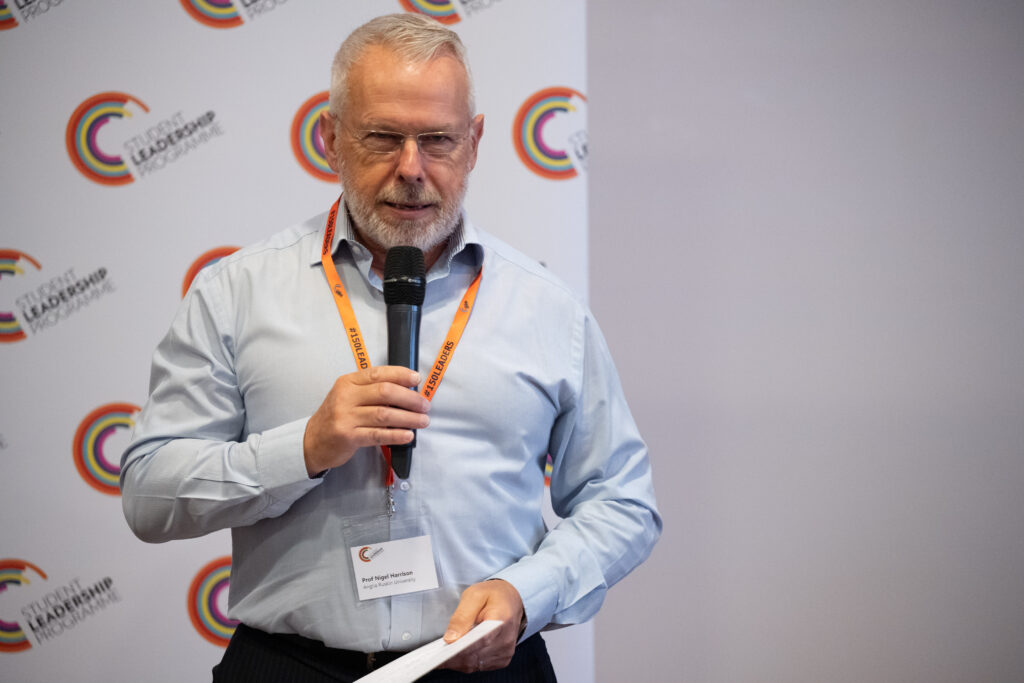
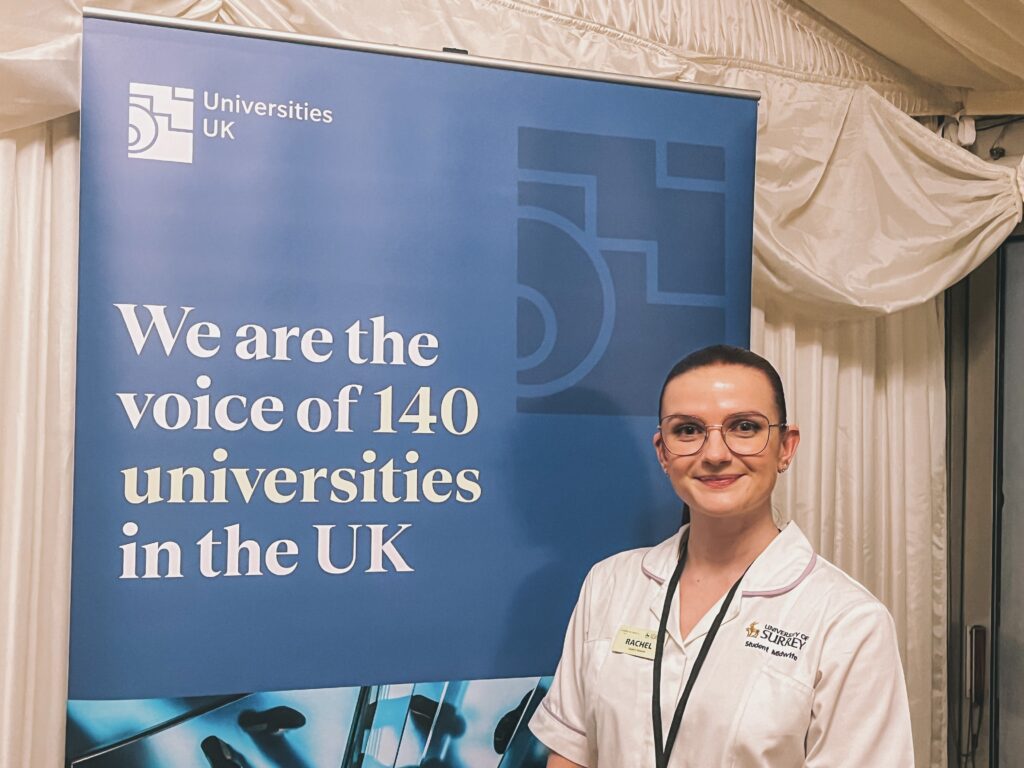
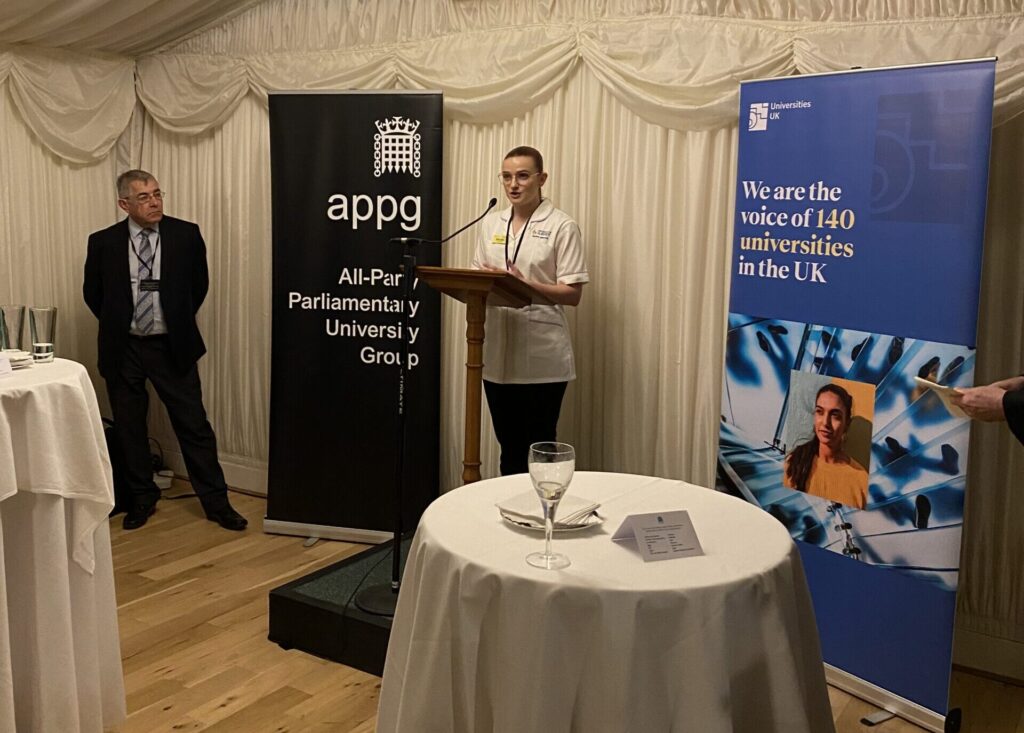
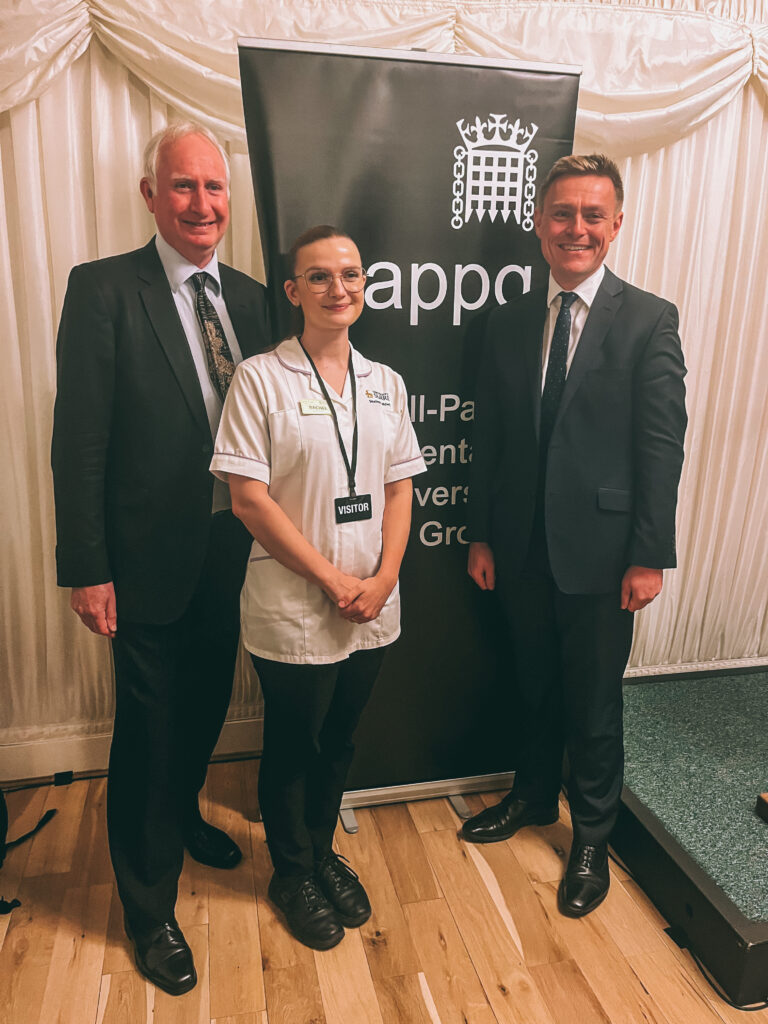
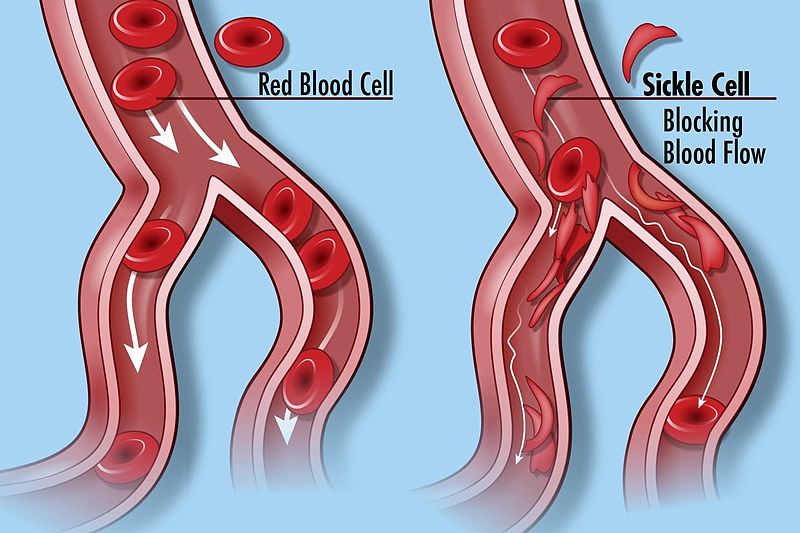
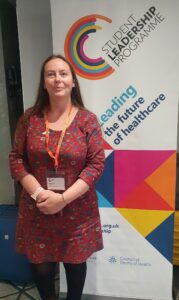
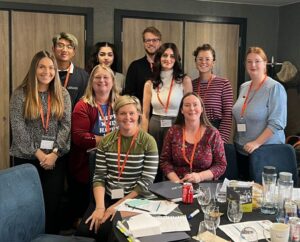
 Oftentimes as a student I have felt like that, ‘just a student’. Only learning, so nothing to offer, to show or teach others. It can feel immensely difficult at times to see myself as more than that. I have a strong passion for making changes within the health service. As a student though, this desire can seem so far away, almost intangible.
Oftentimes as a student I have felt like that, ‘just a student’. Only learning, so nothing to offer, to show or teach others. It can feel immensely difficult at times to see myself as more than that. I have a strong passion for making changes within the health service. As a student though, this desire can seem so far away, almost intangible.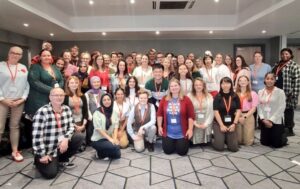
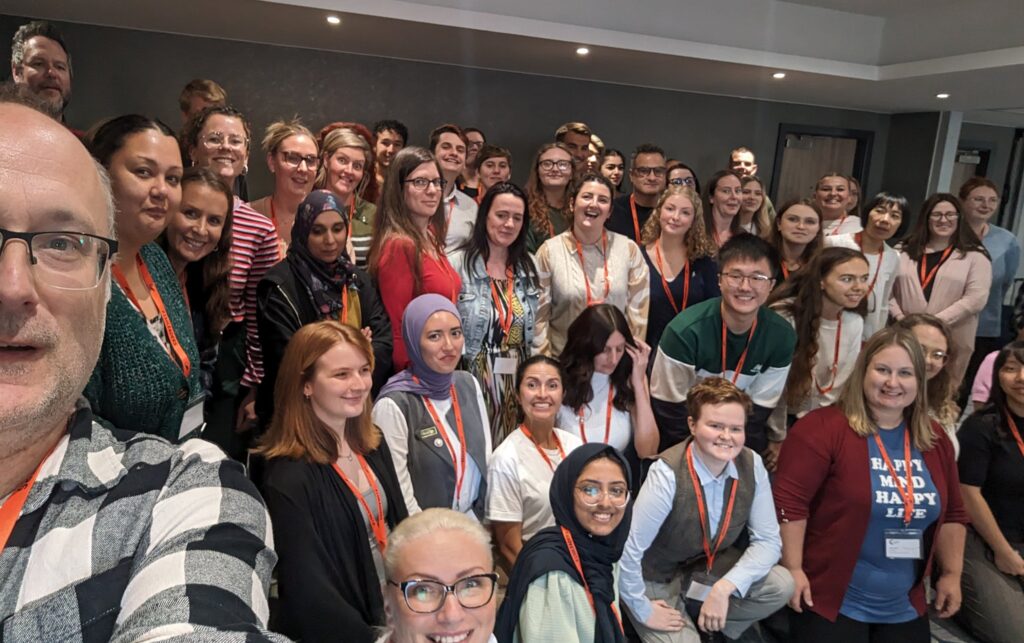

 Rachel Moses OBE, a Consultant Respiratory Physiotherapist, led a powerful session on imposter syndrome. She reminded us that “no one can give you as much positive feedback as yourself.” We explored topics such as leadership, confidence, diversity, and the importance of self-recognition.
Rachel Moses OBE, a Consultant Respiratory Physiotherapist, led a powerful session on imposter syndrome. She reminded us that “no one can give you as much positive feedback as yourself.” We explored topics such as leadership, confidence, diversity, and the importance of self-recognition. The second day started with a hearty breakfast and a touch of Manchester sun. The day’s first presentation was led by Raluca Oaten, a 150 Leaders alumni and Intensive Care Nurse, whose commitment to driving change was truly inspirational. She emphasised the significance of being part of a team that values authenticity and encourages vulnerability, leaving us with a powerful reminder: “always know who you are and what your values are.”
The second day started with a hearty breakfast and a touch of Manchester sun. The day’s first presentation was led by Raluca Oaten, a 150 Leaders alumni and Intensive Care Nurse, whose commitment to driving change was truly inspirational. She emphasised the significance of being part of a team that values authenticity and encourages vulnerability, leaving us with a powerful reminder: “always know who you are and what your values are.” Next, we engaged in a ‘Dragons Den’ activity where each group pitched ideas on how to support healthcare students to a panel of judges composed of Raluca Oaten, Jon Eames from the Council of Deans and Ismat Khan, a Diagnostic Radiographer and one of the 150Leaders Alumni. This activity taught us valuable lessons in teamwork, active listening, and gaining insights from others’ experiences.
Next, we engaged in a ‘Dragons Den’ activity where each group pitched ideas on how to support healthcare students to a panel of judges composed of Raluca Oaten, Jon Eames from the Council of Deans and Ismat Khan, a Diagnostic Radiographer and one of the 150Leaders Alumni. This activity taught us valuable lessons in teamwork, active listening, and gaining insights from others’ experiences.